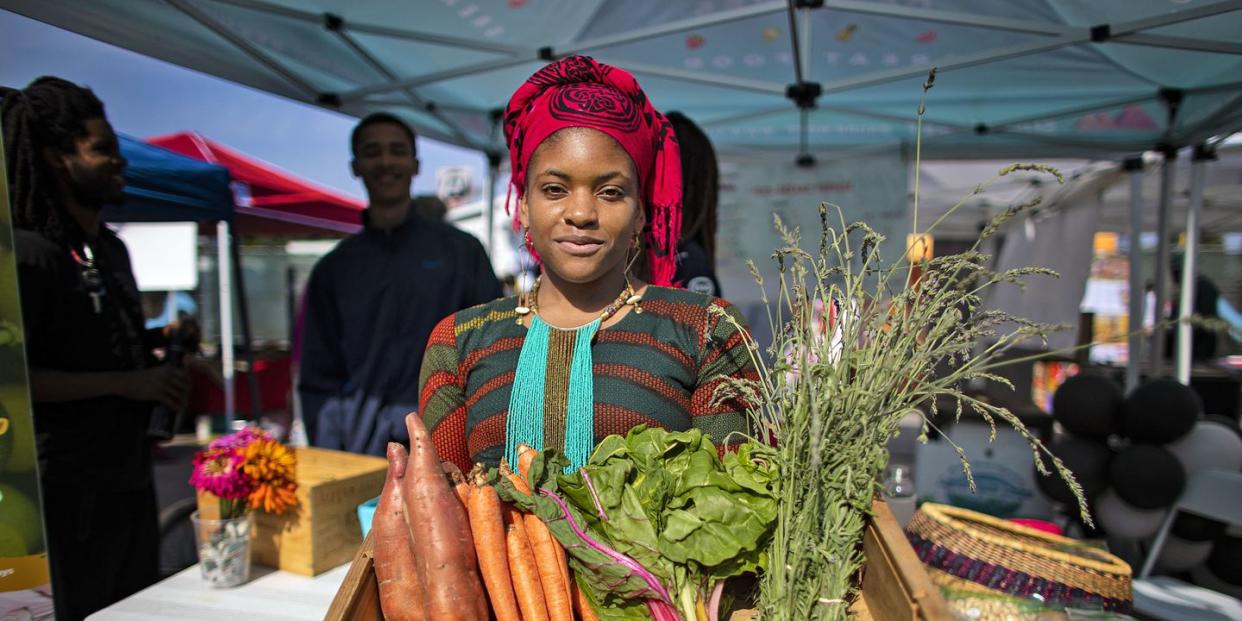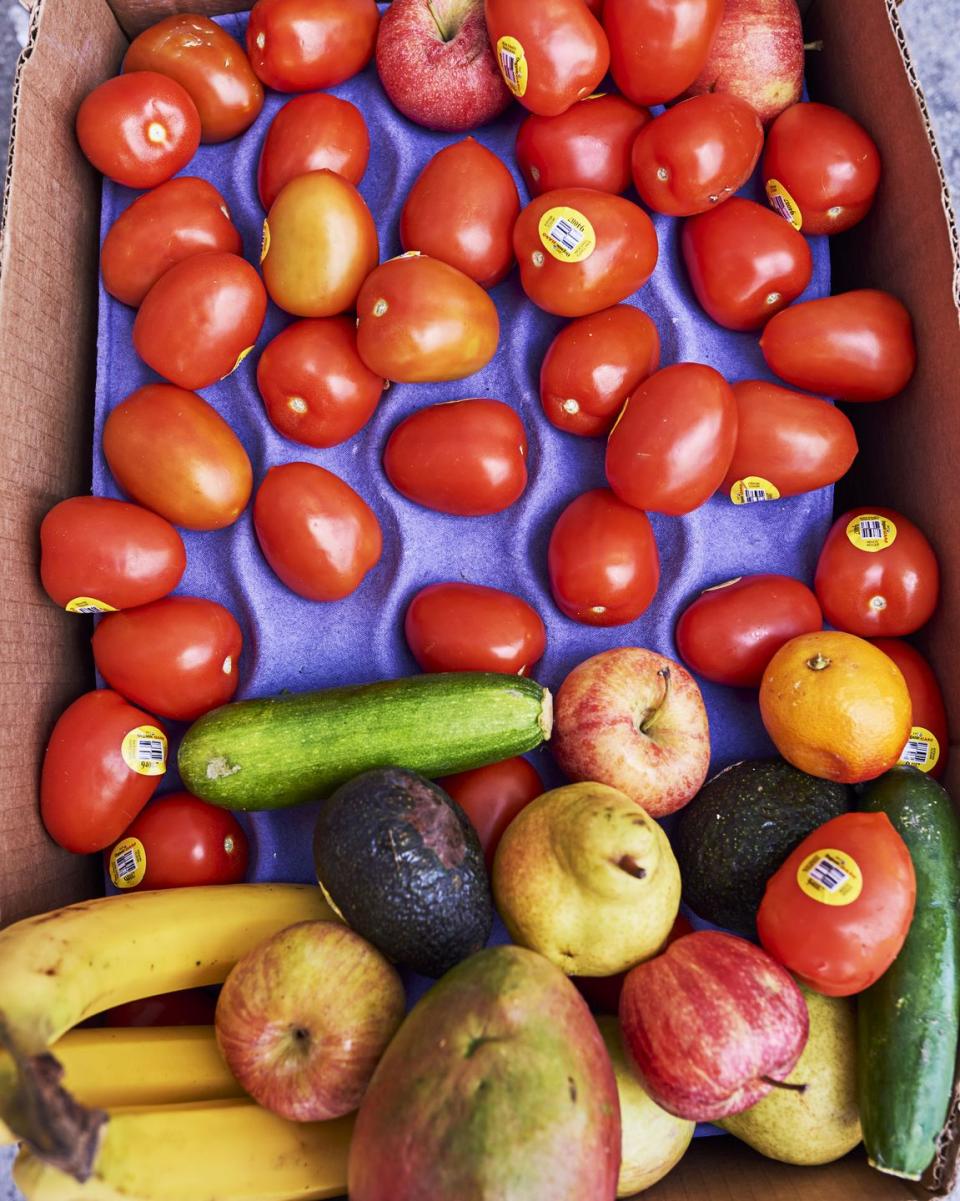This Woman is Working to End Food Apartheid in South Los Angeles

How far away is your local grocery store? A ten-minute walk? A 25-minute drive if the lights are green? Four years ago, Olympia Auset was regularly spending two and a half hours on a city bus to stock up on kale, carrots, tomatoes, cashews, and the like. And not because she’s some kind of foodie diva; all she wanted was decent nutrition — which, in her hometown of South Los Angeles, is remarkably hard to come by. A mere 91 grocery stores serve the area’s approximately 820,000 residents, most of whom are Latinx or Black. Liquor stores (119) drastically outnumber farmers’ markets (there are only five).
Auset, 29, had a food awakening 11 years ago when she went vegan during her freshman year at Howard University. Upon moving back home in 2012, she quickly realized that her personal struggle to find fresh produce nearby was community-wide. South L.A. qualifies as a food desert, an area in which access to fruits and vegetables is limited or punishingly far away. “But deserts occur naturally,” says Auset, who prefers to say “food apartheid”: “That term brings attention to the fact that this issue is man-made, the result of oppression. It’s not an accident.”

In 2016, fed up with the local scarcity, Auset launched Süprmarkt, a combination pop-up stand (though that’s on hiatus since Covid struck) and grocery service. On weekdays, she and a crew of volunteers pick up yams, oranges, beets, and other healthy foods from farmers and organic wholesalers. The bounty is then organized order by order and left on about 100 doorsteps every weekend. To date, Süprmarkt has distributed 70,000 pounds of low-cost groceries. (It held an emergency 1,400-pound grain and seed giveaway when the pandemic hit.) Though she’s careful to include familiar produce — “bananas and mangoes don’t grow locally, but our customers regularly use them” — Auset strives to introduce lesser-known ingredients, too. “Education is a big part of the mission,” she says. “Someone once texted me a picture of fresh basil and asked, ‘What’s this?’ So I sent him a pesto recipe. He made it and texted back, ‘Oh my God, this is so good.’”
In partnership with Feeding America, O, The Oprah Magazine and Hearst Magazines are committed to putting an end to hunger. To help food banks feed families in need, please donate at feedingamerica.org.
For more stories like this, sign up for our newsletter.
You Might Also Like

